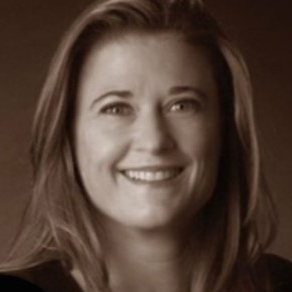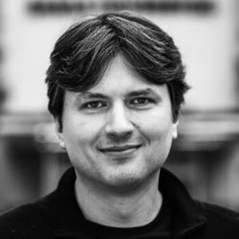Speakers - Seminar: Measuring metabolism in the human brain
Speakers

Luc Pellerin is a biochemist and expert in brain energy metabolism. He is the pioneer of the Astrocyte-Neuron Lactate Shuttle. His research focuses on the respective roles of glucose and lactate to sustain brain functions. He is also an expert of monocarboxylate transporters and has developed transgenic MCT1, MCT2 and MCT4 mice. He has been working during 30 years at the University of Lausanne, where he headed the Department of Physiology. In 2019 he moved to the University of Poitiers where he is now the head of an INSERM unit working on ischemia and metabolism.
Current position: Professor of Cellular Biology at the University of Poitiers, associated to the Service of Biochemistry at Poitiers University’s Hospital, director of the Biology and Health Institute at the University of Poitiers, and director of IRMETIST lab.

Anne-Karine Bouzier-Sore is a biochemist and biophysicist working in the field of NMR spectroscopy and MRI. She is studying the metabolic interactions between astrocytes and neurons and also looking at the impact of nutrition on brain metabolism. She is mainly using 13C-labeled substrates to follow brain metabolism in neurons and astrocytes, both in vitro and in vivo. Using NMR and MRI she demonstrated that lactate is a preferential oxidative substrate for neurons over glucose and that lactate seems essential to support brain activity. Lactate was also shown to be neuroprotective after a neonatal hypoxic-ischemic event.
Current position: CNRS research director, director of the Sciences & Technology department of the University of Bordeaux, deputy director of the CRMSB lab.

Dr. Jeanine J. Prompers, University Medical Center Utrecht is Associate Professor of Biomedical Magnetic Resonance Imaging (MRI) and Spectroscopy (MRS) in the High Field MRI group at the UMCU. Her research focuses on the development of multi-nuclear MRS and MRI methods for the in vivo study of tissue metabolism in metabolic diseases. She has a strong track record on the application of MRS to measure energy and lipid metabolism in skeletal muscle, liver and heart, in particular in the setting of obesity and diabetes.
Currently, she is involved in the development of world’s first dedicated whole-body 7 T MR scanner for metabolic imaging (META-scan). She is one of the pioneers of deuterium metabolic imaging and was the first to perform this technique in human brain and liver at ultra-high field. Dr. Prompers has published over 80 papers and has supervised 11 PhD students as co-promotor.
During her lecture, Dr. Prompers will discuss both methodological aspects and applications of deuterium metabolic imaging to spatially map glucose metabolism in the brain.

Along with Andrei G. Vlassenko, MD, PhD, he directs an NIH-funded human brain imaging lab that aims to study mechanisms underlying brain aging and resilience to neurological disorders such as Alzheimer's disease, multiple sclerosis, and stroke. The lab is particularly focused on applying advanced brain PET and MRI techniques and multi-modal analytical methods to studying the human brain. His lab continues to develop methods to investigate human brain metabolism, including with state-of-the-art PET and MRI methods as well as in collaboration with mouse imaging laboratories.
Goyal is also a neuroradiologist for clinical studies at the Blantyre Malaria Project in Blantyre, Malawi.

Itamar Ronen obtained his PhD in Physical Chemistry from the School of Chemistry in Tel Aviv University, where he worked on developing a method for indirect NMR detection of 17. While being a post-doc at the Center for Magnetic Resonance Research at the University of Minnesota, he developed a strong interest in diffusion-based contrast in MR.
Itamar obtained his first academic position at the Boston University School of Medicine, and there, together with Dr. Dae-Shik Kim, he co-founded the Center for Biomedical Imaging. There he started his long affair with measurements of neurometabolite diffusion with diffusion-weighted magnetic resonance spectroscopy (DW-MRS) as potential markers for cell-specific microstructure and metabolism.
In 2009 Itamar moved to the Netherlands, where he joined the C. J. Gorter Center for MRI at the Leiden University Medical Center (LUMC) as PI and Associate Professor at the Department of Radiology. In Leiden he dedicated most of his time to developing methods for measuring diffusion of intracellular metabolites in humans at ultrahigh field (B0 = 7T). In collaboration with groups across several countries, these methods were applied to a variety of diseases. In collaboration with the low field MRI group at the LUMC, Itamar started recently also developing spectroscopic techniques suitable for ultralow field MR (B0 = 0.05T) with focus on detection of lactate.
Itamar moved to Brighton in the UK in 2021, and there he holds the positions of Academic Director of the Clinical Imaging Science Centre (CISC) and Chair in Medical Physics at the Brighton and Sussex Medical School. At CISC he dedicates most of his efforts on developing a program in low field MRI and on collaborating with researchers interested in implementing a variety of spectroscopic techniques, including DW-MRS, to examine metabolic disturbances in a variety of diseases.

Charalampos Tzoulis is a Professor of Neurology and Neurogenetics at the University of Bergen and Haukeland University Hospital, Bergen Norway. As a clinical neurologist, Prof. Tzoulis is an expert on movement disorders and neurodegeneration, including dementia and parkisonism. His research focuses on exploring the role of mitochondrial dysfunction in Parkinson's disease (PD) with the aim to improve patient diagnosis and develop neuroprotective therapies.
He is the Principal Investigator of the research group Neuromics at the University of Bergen and co-Director of the Neuro-SysMed Center of Excellence for Clinical Research in Neurological diseases, where he leads the research on PD and other neurodegenerative disorders. Since 2022, he is also the Director of the K.G. Jebsen Center for Translational Research in Parkinson's Disease at UiB.

The lecture will focus on the current use of MR spectroscopy in a clinical neuroradiology setting as well as hopes for the future from a radiologist’s point of view.

Samaira Younis, MD, PhD, is a postdoctoral researcher at the Danish Headache Center, Rigshospitalet, Denmark. She is also doing her neurological residency in the Capital Region of Denmark. Dr. Younis has authored more than 20 peer-reviewed publications.
Her academic work focuses mostly on disease mechanisms underlying migraine pathogenesis and the use of advanced magnetic resonance imaging to investigate biomarkers of migraine. Her research interests involve the pathophysiology of migraine, including pain mechanisms, neuroimaging in headache and experimental human migraine models.
Dr. Younis has also been involved in clinical trials investigating prevention of migraine with monoclonal antibodies.

Guglielmo Genovese, PhD, is a tenure-track faculty at the department of Neuromedicine and Movement Science (INB, Norwegian University of Science and Technology, Trondheim), which he very recently joined (October 2023).
Previously, he spent four years of post-doctoral training at the Center for Magnetic Resonance Research (CMRR, University of Minnesota). In 2019, he completed his PhD in neuroscience at the Sorbonne University working at the Brain Institute under the supervision of Prof. Stephane Lehericy. During his PhD, he investigated microstructural alterations in the human brain and in experimental models with magnetic resonance spectroscopy (MRS), and with diffusion weighted- (DW-)MRS at high (3 T) and ultra-high field (11.7 T).
Major achievements of this work were a histological validation of DW-MRS markers for detecting inflammation, and a promising application of DW-MRS for monitoring inflammation in cerebral ischemia.
Currently, he is focused on characterizing the impairment of GABAergic and glutamatergic metabolisms in major depressive disorder and migraine at ultra-high field (7 T). Additionally, his research involves the characterization of macromolecular changes linked to aging and Alzheimer’s disease.
